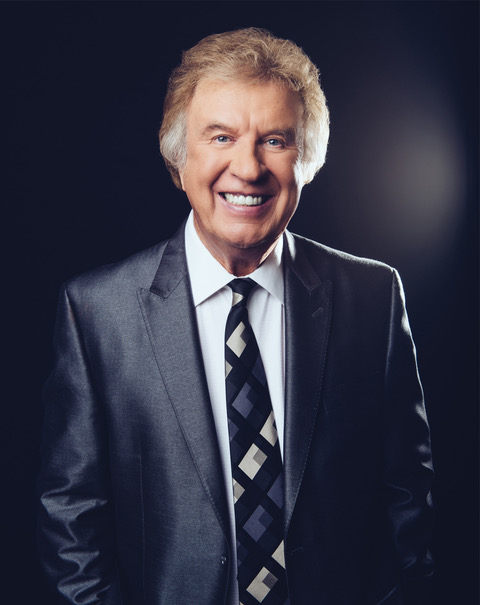
To Live or Die
We Christians rejoice in the significance of new life in Christ – and rightly so. Apart from Jesus Christ we cannot know the joy of true life.
But we seldom give much thought to the fact that in order to receive that new life, Christians have to die. We tend to skim over the Scriptural passages that speak of our need to die. We don’t do it deliberately, but we are understandably more enthused about the life in Christ that we now live than the death of leaving things behind.
The life we enjoy in Christ is, however, very much a result of death. Above all it is the result of Christ’s own death for our sins. Without his death on our behalf, it would be impossible for us to enjoy eternal life.
But the Scriptures also speak of ways in which we ourselves must “die” – a death that can be anything from a minor, inconvenient loss of something we cherish, right through to the most stressful and traumatically life-changing experience. All of us, if we are to fully enjoy life in Christ, must experience “deaths” of various kinds.
So what are these deaths, and how does the Bible describe them? The Apostle Paul has much to say about dying. He speaks of “dying to what once bound us” (Romans 7:6) – a reference to no longer being bound by the Law of God as a necessary means of righteousness before God. In Galatians 6:14 he says “the world has been crucified to me, and I to the world”. In Colossians 3:5 he tells us to “put to death, therefore, whatever belongs to your earthly nature”. This is effectively the same as Jesus requiring that anyone wishing to be his disciple must “deny themselves and take up their cross and follow me” (Matthew 16:34) – it is a death to self. Many other Bible passages convey a similar message.
 So we are to die to the Law, die to the world and die to self. This is hardly news to any Christian who is familiar with the Bible, but what does death to self look like in practice – in our day-to-day lives? I want to suggest that we seldom give sufficient thought to the implications and importance of dying in this way. And to the extent to which we fail to put ourselves to death, we fail to really live.
So we are to die to the Law, die to the world and die to self. This is hardly news to any Christian who is familiar with the Bible, but what does death to self look like in practice – in our day-to-day lives? I want to suggest that we seldom give sufficient thought to the implications and importance of dying in this way. And to the extent to which we fail to put ourselves to death, we fail to really live.
It’s human nature for us to want to hang onto life. There’s nothing wrong with that. It’s our God-given survival instinct. It applies not only to physical life, but to what we might think of as quality of life. The problem is that our sinful human nature looks for life in the wrong places.
I once heard someone joke that “everything that is good is either illegal, immoral, expensive or fattening.” I think what they really meant, in a tongue-in-cheek sort of way, was that everything that appears to be desirable for an enjoyable life is either illegal, immoral, expensive or fattening. I’m not suggesting for a moment that we should die to everything that helps make life enjoyable, but let’s face it – we all-too-often look for life in the wrong places. We hang onto things and habits and relationships that appear to offer us a better life, but are in fact detrimental to true life – to life with Christ.
Dying to self is something we don’t do well. It’s really, really hard. We want a comfortable self, we want a secure self, we want our self to be loved, and we are naturally drawn to those things and those people that most obviously appear to meet these needs.
Human beings have an incurable need for security, comfort and love. We will search for these endlessly until we find them. These needs are not wrong – indeed God designed us with these needs, and he designed us to seek fulfilment of these needs in him and in the good things he gives us.
But if God’s gifts become an alternative to God himself as a source of comfort and security and love, then they become a distraction from God. To the extent that we seek life in God’s good gifts, we inevitably forfeit life in God.
Our need for security, comfort and love is so great that we tend to hoard and accumulate those things that help ensure those needs are met. We try to build our own little “kingdom of self” – a world where we are secure and comfortable and loved, a world that revolves around making us happy. And we will vigorously defend our little kingdom against anything that threatens to take those things away from us.
 Some of the resources we might be tempted to rely on to build and maintain our own personal kingdom are wrong in themselves: excessive alcohol, drugs, pornography, immoral relationships. All of these can help us to feel good about our self. They can give us satisfaction and comfort – for a short time.
Some of the resources we might be tempted to rely on to build and maintain our own personal kingdom are wrong in themselves: excessive alcohol, drugs, pornography, immoral relationships. All of these can help us to feel good about our self. They can give us satisfaction and comfort – for a short time.
But we can also wrongly use legitimate resources to build our kingdom of self. We can surround ourselves with material possessions, we can make unreasonable demands upon loved ones, insisting that they behave in ways that makes us happy.
The biblical concept of dying to self means dying to a world that puts me at the center. It means dying to a world that offers me security and comfort and love apart from a relationship with Jesus Christ.
If we are honest with ourselves, we will admit that demolishing our kingdom of self is a very difficult thing to do. It requires a degree of sacrifice that many of us are unwilling to make. We would prefer to hedge our bets. We try to live for the Kingdom of God while at the same time jealously guarding our kingdom of self.
 But attempting to maintain both is a false economy. As Jesus says, “You cannot serve two masters. . . You cannot serve both God and wealth”. (Luke 16:13). “Wealth” can be anything that serves to help us feel more secure, comfortable and loved apart from God.
But attempting to maintain both is a false economy. As Jesus says, “You cannot serve two masters. . . You cannot serve both God and wealth”. (Luke 16:13). “Wealth” can be anything that serves to help us feel more secure, comfortable and loved apart from God.
To really live for the Kingdom of God, we have to die to the kingdom of self. And experience tends to show that we need to do it over and over again, day after day, throughout our lives.
To really live, you have to die.

Bob Thurlow
By Bob Thurlow, Pastor at Presbyterian Church of Australia, Minister (Christianity) at Presbyterian Church of Australia and Home Missionary at Presbyterian church of NSW





